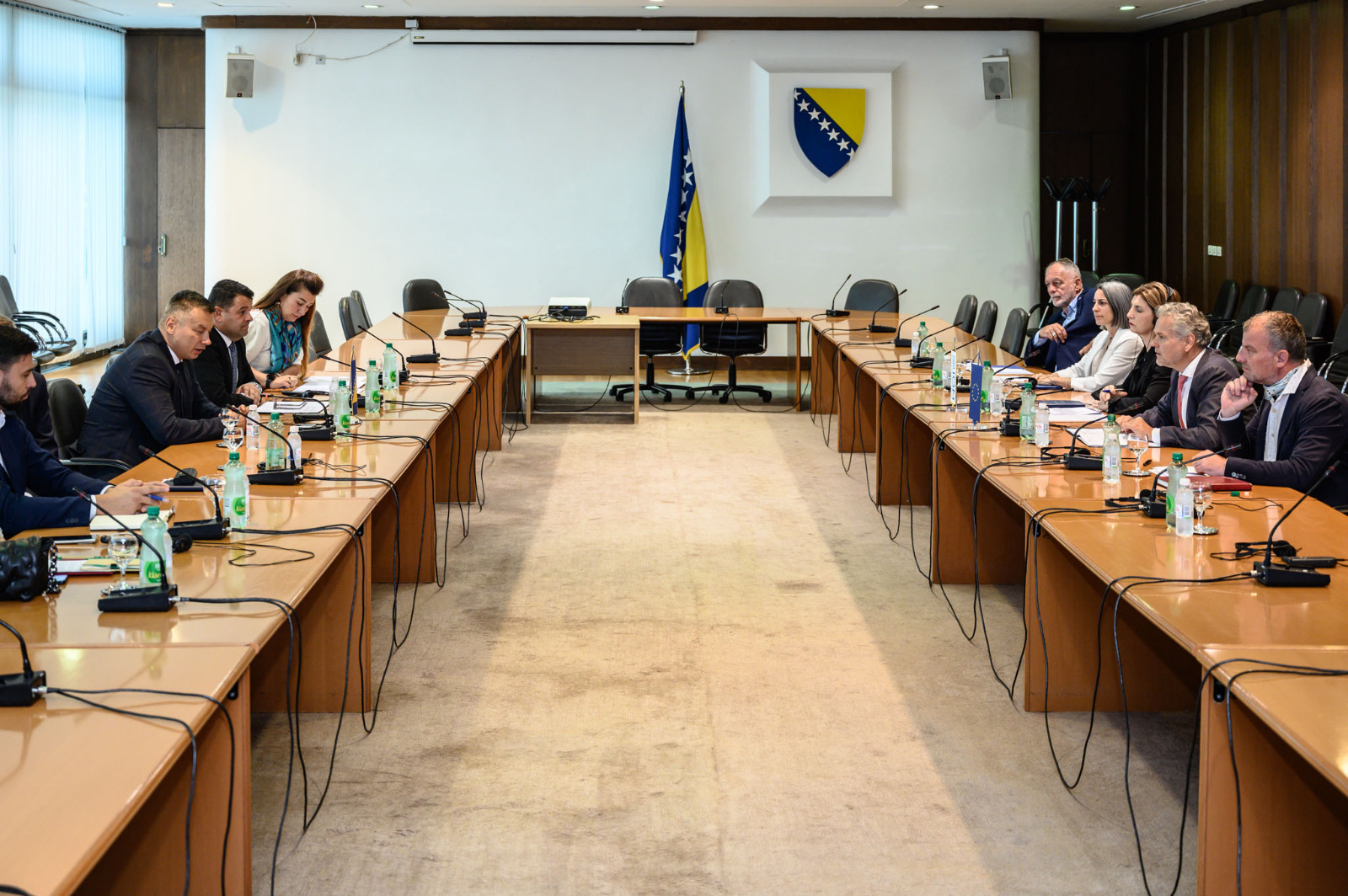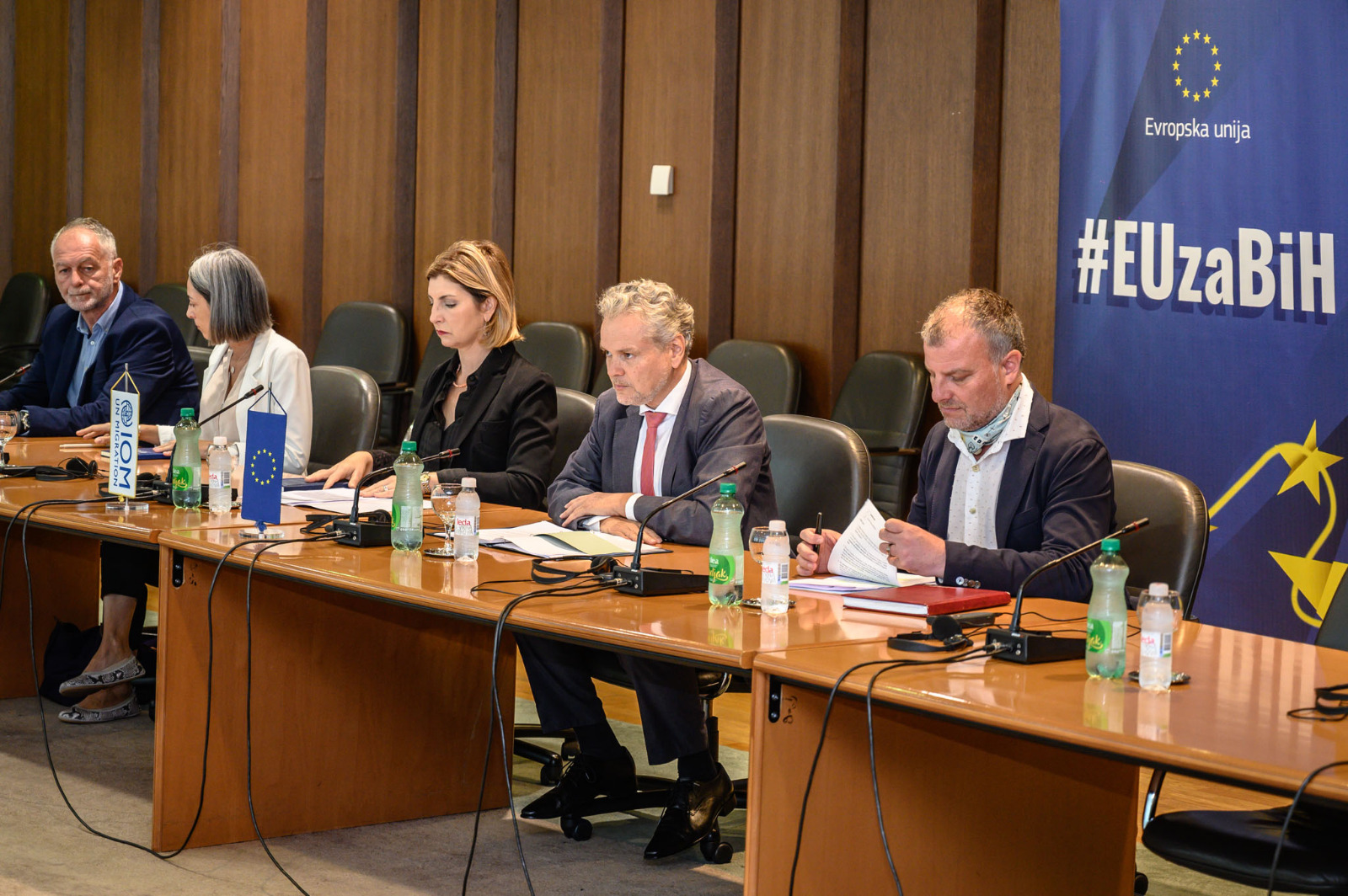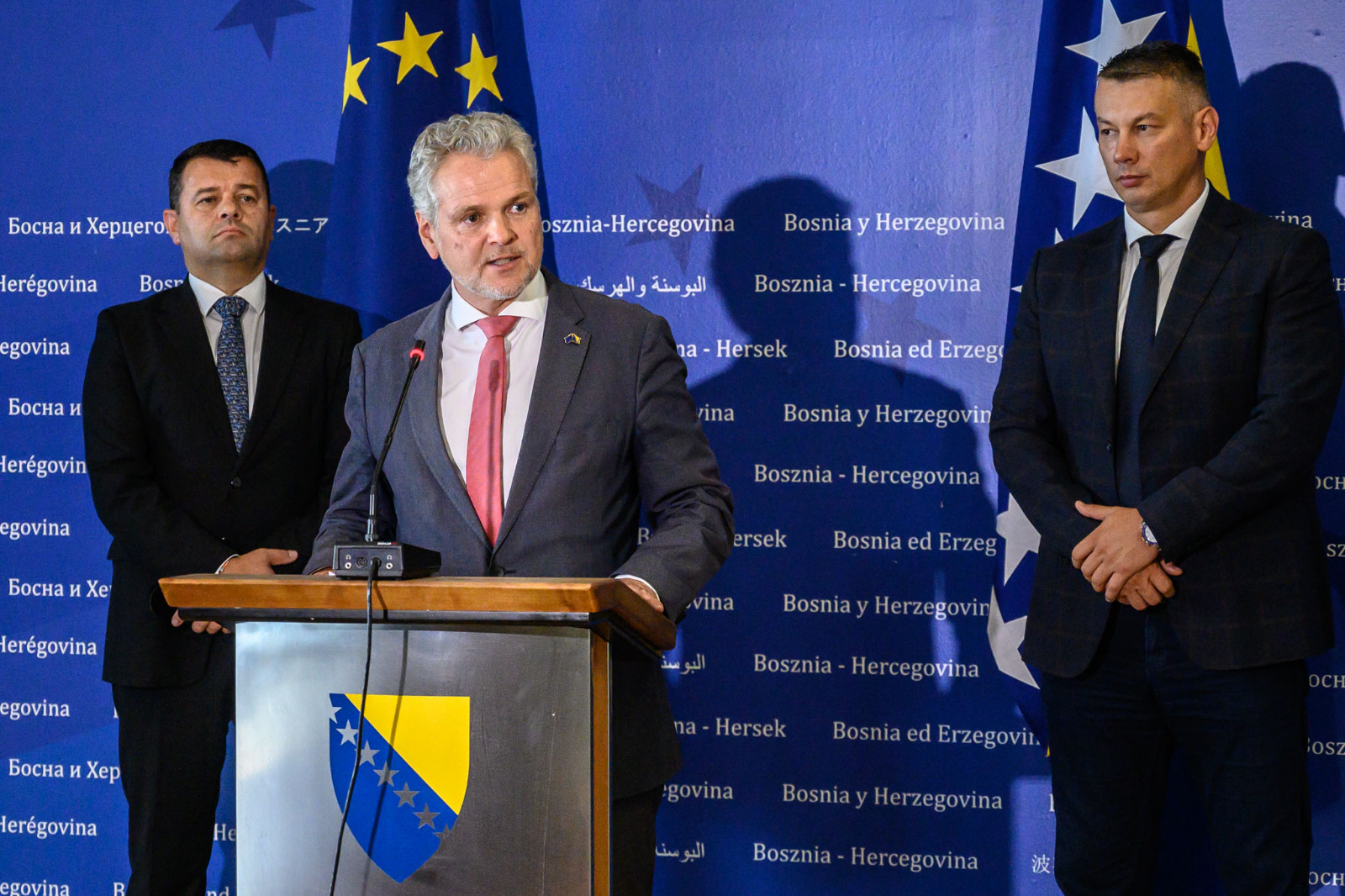-
Who We Are
WHO WE AREThe International Organization for Migration (IOM) is part of the United Nations System as the leading inter-governmental organization promoting humane and orderly migration for the benefit of all. IOM has had a presence in Bosnia and Herzegovina since 1992.
About
About
IOM Global
IOM Global
-
Our Work
Our WorkAs the leading inter-governmental organization promoting since 1951 humane and orderly migration, IOM plays a key role to support the achievement of the 2030 Agenda through different areas of intervention that connect both humanitarian assistance and sustainable development. Across Bosnia and Herzegovina (BH), IOM aims to prevent irregular migration, stop the trafficking of human beings, contribute to national development, and assist the BH Government to manage migration activities.
Cross-cutting (Global)
Cross-cutting (Global)
- Data and Resources
- Take Action
- 2030 Agenda
Further advancement towards independent migration management in Bosnia and Herzegovina
(Sarajevo, September 19, 2023) The Minister of Security of Bosnia and Herzegovina, Nenad Nešić, and Minister of Human Rights and Refugees, Sevlid Hurtić met with the Head of the EU Delegation to BiH and the EU Special Representative in BiH, Ambassador Johann Sattler today in Sarajevo to discuss the ongoing transition plan for transferring responsibility of the migration response to the BiH authorities.
Following the transition meeting held in Trebinje in May, today's meeting marks another significant step in the transition towards a State-led migration response.
As one of the fourteen key priorities to initiate accession negotiations with the European Union, the authorities in BiH need to ensure the effective functioning of the border management, migration, and asylum systems. In the area of migration management, positive progress has been achieved with BiH institutions playing an increasing role in the management and coordination of the mixed migration response. One key area where progress has been achieved is in the management of Temporary Reception Centers (TRCs), with TRC Lipa managed by the Service for Foreigners' Affairs with the technical support of IOM.

Since the opening of TRC Lipa, under the leadership of the BiH Ministry of Security and with generous financial support from the European Union and other donors, the capacity to accommodate migrants, asylum seekers, and refugees has surpassed the number of individuals present in the country. This significant achievement is the result of collaborative efforts from various stakeholders. Overall, since the beginning of 2018, the EU has allocated over 140 million euros to BiH to strengthen migration management capacity.
Over the past year, the BiH Ministry of Security and BiH authorities have demonstrated their commitment to assume greater coordination and management of the mixed migration response from UN agencies and other humanitarian actors.
Continued efforts are required in order to more clearly define the roles and responsibilities of the competent state institutions. There is also a need to strengthen coordination and cooperation between all relevant institutions at different levels, as well as between BiH institutions and international organizations and donors. It is necessary to agree on the key components that are required for the State to take over the management and coordination of the mixed migration response.
To facilitate this transition, with financial support from the European Union through the project "Individual Measure to Strengthen the Response Capacity to Manage Migration Flows in Bosnia and Herzegovina," IOM, UNFPA, UNHCR and UNICEF and their implementing partners are working closely with the Ministry of Security and other relevant Ministries on a comprehensive transition plan. The transition towards a State-led management of the mixed migration response foresees the gradual transfer of the responsibility of camp management and assistance to migrants, asylum seekers and refugees to the government, by providing technical support, capacities, tools, and resources to strengthen national ownership of the response. The handover to the authorities is expected to be completed between the end of 2024 and mid-2025.


